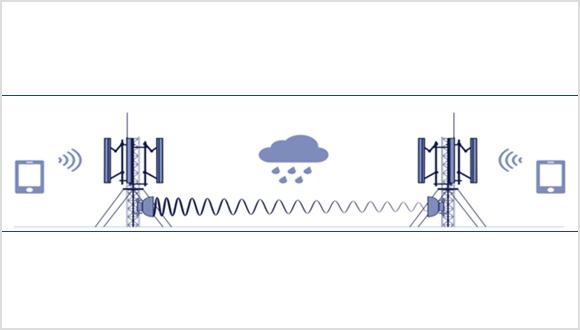דוקטורנטים מספרים - Adam Eshel
Processing cellular telecommunication signals for accurate rainfall monitoring
Adam Eshel
Supervisor: Prof. Pinhas Alpert
Smart cities, telecommunication, and other wireless networks operate in the microwave spectrum. As rainfall scatters these radio signals, the logged power level is reduced proportionally to the rain intensity between the transmitting and receiving antennas. Therefore, by possessing these measurements, an unprecedented density of ground level rainfall monitoring instruments is obtained. Hi, my name is Adam Eshel, and I am a PhD student in the Geophysics Department. My research focuses on the implementation of this technology into the world of hydrometeorology, in other words: physics, signal processing, and BIG-Data. The importance of this work stems from the human pursuit of more accurate knowledge about rainfall which impacts many facets of our lives, ranging from infrastructure panning, hazard warning, food production, to even deciding what to wear when we leave the house.
Our research group focuses on the vital connection between geosciences and electrical engineering. The team members are physicists, hydrologists, atmospheric physicists, and signal processers.
Topics on the agenda:
-
Showing the potential of this technology for short term flash-flood warnings. This is done by running a numerical hydrological model as well as statistical analysis.
-
Improving 2-D rain maps derived from microwave links by determining appropriate parameters, depending on the spatial properties of the rain and the network, and how they relate to one another.
-
Providing short term predictions of rainfall in areas where observations do not exist, using previously produced rain maps.
-
Fixing inherent errors in weather radars observations by utilizing the spatially interpolated rain field from the steps mentioned above.
This unique research field is of great importance for agriculture, risk management, hydrology, smart transportation, and more. Furthermore, this is an opportunistic utilization of data that already exists. By using this data, the deployment and maintenance of expensive additional equipment becomes superfluous, which is also beneficial to the environment.


